
Gun laws in Virginia regulate the sale, possession, and use of firearms and ammunition in the Commonwealth of Virginia in the United States. [1] [2]

Gun laws in Virginia regulate the sale, possession, and use of firearms and ammunition in the Commonwealth of Virginia in the United States. [1] [2]
| Subject / law | Long guns | Handguns | Relevant statutes | Notes |
|---|---|---|---|---|
| State permit required to purchase? | No | No | ||
| Firearm registration? | No | No | § 18.2-295 | Fully automatic firearms (machine guns) are required to be registered with the state police. |
| Owner license required? | No | No | Proof of age and citizenship required for the purchase of firearms. | |
| Permit required for concealed carry? | N/A | Yes | § 18.2-308 | Virginia is a "shall issue" state for concealed carry. Permits are issued to residents and non-residents. As of January 1, 2021, the option of obtaining training via an electronic, video or online course will be removed. [3]
|
| Permit required for open carry? | No | No | § 15.2-915.2 | Open carry is generally allowed without a permit for people 18 years of age and older. The following cities and counties have exceptions that disallow the open carry of a loaded semi-automatic center-fire rifle or pistol that expels single or multiple projectiles by action of an explosion of a combustible material and is equipped at the time of the offense with a magazine that will hold more than 20 rounds of ammunition or designed by the manufacturer to accommodate a silencer or equipped with a folding stock or shotguns equipped with a magazine that holds more than 7 rounds: the Cities of Alexandria, Chesapeake, Fairfax, Falls Church, Newport News, Norfolk, Richmond, and Virginia Beach and in the Counties of Arlington, Fairfax, Henrico, Loudoun, and Prince William. These restrictions do not apply to valid concealed carry permit holders. Stated differently, one may open carry an assault weapon/shotgun with more than 7 rounds with a permit in the aforementioned locations, but do not need a permit to do so in any other locality in Virginia.
|
| State preemption of local restrictions? | Yes | Yes | § 15.2-915 | Virginia has state preemption for most but not all firearm laws. As of July 1, 2020, local governments have expanded power to ban firearms in certain sensitive areas, such as government buildings and public events. [6] |
| Assault weapon law? | Yes | Yes | § 18.2-308.2:2 | Proof of age (18+ for long arms, 21+ for pistols) and proof of citizenship (or permanent residence license) are required for the purchase of "assault weapons". "Assault weapons" are defined as a semi-automatic, centerfire, firearm equipped with a folding stock, or equipped at the time with a magazine capable of holding more than 20 rounds, or capable of accommodating a silencer/suppressor. |
| Magazine restriction? | No | No | § 18.2-287.4 | Magazines capable of holding more than 20 rounds are legal but, they make the firearm an "assault weapon", subject to law accordingly. |
| NFA weapons restricted? | No | No | § 18.2-308.8 § 18.2-308.5 § 18.2-295 | Fully automatic firearms (machine guns) must be registered with the state police. Plastic firearms and some destructive devices (such as the striker 12 shotgun) are prohibited outside law enforcement. SBS, SBR, AOWs, and suppressors are legal with NFA paperwork. |
| Background checks required for private sales? | Yes | Yes | 18.2-308.2:5 | As of July 1, 2020, firearms sellers, with some exceptions, must obtain criminal history information from the Virginia State Police to determine if a firearm buyer is permitted, under applicable state and federal law, to purchase or possess firearms. Notably, the law does not apply to transfers of firearms in which nothing of value is exchanged for the firearm. [7] [8] The penalty for noncompliance with the law is a Class 1 misdemeanor. In Virginia, Class 1 misdemeanors are punishable by up to 1 year in jail and a $2,500 fine. [9] |
| Red flag law? | Yes | Yes | A judge can issue an Extreme Risk Protective Order, enabling the police to temporarily confiscate the firearms of a person deemed to be at high risk of harming themselves or others. [10] |
| Gun laws in Virginia | |
|---|---|
 | |
| Constitution | |
| Constitution sections | Article I, §13. |
Synopsis
| |
| Preemption and local regulation | |
| Preemption sections | § 15.2-915., § 15.2–915.1., § 15.2–915.2., § 15.2–915.4., § 15.2-914. |
Synopsis Localities may regulate the transportation of a loaded rifle or shotgun, regulate the use of pneumatic guns, and the possession and storage of firearms by persons who provide child-care services. | |
| Registration | |
| Ownership registration sections | § 18.2–295. |
Synopsis Machine guns must be registered with the Virginia State Police. [11] | |
Purchase registration No purchase registration | |
Lost/stolen registration No lost/stolen registration | |
| Restricted or prohibited items | |
| Restricted firearms sections | § 18.2–308.8., § 18.2–308.5. |
Synopsis Armsel Striker, also known as the Striker 12, and similar shotguns are prohibited. Plastic firearms are prohibited. | |
Restricted ammunition No restricted ammunition | |
Restricted accessories No restricted accessories | |
| Restricted or prohibited places | |
| Restricted places sections | § 18.2–283., AG Opinion 11-043, § 18.2–283.1., § 18.2–287.01., § 18.2–287.4., § 18.2–308.1., 4VAC15-40-60., 4VAC10-30-170., 8VAC35-60-20. GA JRC Rule [usurped] , § 18.2–308. |
Synopsis
| |
| Restricted or prohibited persons | |
| Underage persons sections | § 18.2–56.2., § 18.2–308.7. |
Synopsis
| |
| Alien persons sections | § 18.2–308.2:01. |
Synopsis
| |
| Restricted persons sections | § 18.2–308.1:1., § 18.2–308.1:2., § 18.2–308.1:3., § 18.2–308.1:4. |
Synopsis
| |
| Convicted persons sections | § 18.2–290., § 18.2–308.1:5., § 18.2–308.2. |
Synopsis
| |
| Manufacturing | |
| Manufacturing regulations sections | § 18.2–294., § 18.2–304., § 18.2–308.5. |
Synopsis
| |
| Sale, purchase, and transfer | |
| Dealer regulations sections | § 18.2–294., § 18.2–304., § 18.2–308.2:1., § 18.2–308.2:3. § 18.2–308.2:2., |
Synopsis
| |
| Private sale regulations sections | § 18.2–308.2:1., § 18.2–308.2:2. |
Synopsis
| |
| Transportation and carry | |
| Transportation restrictions sections | § 15.2–915.2., § 18.2–308. |
Synopsis
| |
| Open carry restrictions sections | § 18.2–308. |
Synopsis
| |
| Concealed carry restrictions sections | § 18.2–308, § 18.2–308.012 |
Synopsis
| |
Historians trace Virginia's first experience with gun control laws back to the First General Assembly of Jamestown on July 30, 1619. During this-five day meeting, Virginia officials voted in a gun control enactment that regulated the sale of firearms to Native Americans. [14] In fact, each period of American history brought with it its own series of gun control regulations in Virginia. [14] More recently, in the fallout of the Virginia Beach mass shooting in the summer of 2019, Governor Northam's Democrat controlled General Assembly have attempted to pass substantial new gun control legislation. [15] In February 2020, a proposed assault weapons ban failed in the Virginia Senate. [16] In April 2020, several new gun laws were enacted, including a requirement of background checks for private sales, a red flag law enabling Extreme Risk Protection Orders, a requirement to report lost or stolen guns, and the reinstating of a one-handgun-a-month law. [17] [18]
The Constitution of Virginia protects the right of the people to keep and bear arms from government infringement. [19] The Commonwealth of Virginia preempts local regulation of several aspects of firearms, though some local regulation is explicitly permitted. Virginia passed the Uniform Machine Gun Act, which was drafted by the National Conference of Commissioners on Uniform State Laws. [20] [21] The only firearms in Virginia that are prohibited are the Armsel Striker, also known as the Striker 12, similar shotguns, and any "plastic firearms." Firearms must contain at least 3.7 ounces of electromagnetically detectable metal in the barrel, slide, cylinder, frame or receiver, and when subjected to x-ray machines, generate an image that accurately depicts their shape. [22] For example, Glock pistols which have polymer frames and metal slides and barrels are legal. There are no magazine capacity limitations, except that a concealed handgun permit (CHP) is required in order to carry magazines with more than 20 rounds in some urban, public areas.Edit: Virginia has NO capacity limiting laws. Drums, stendos, and belts are allowed. [1] [2] Prohibited places include courthouses, air carrier terminals, schools, child day centers, [23] the Capitol and General Assembly buildings (as of early 2020), [24] and churches, though some exceptions apply, including a 2011 Attorney General opinion that personal protection constitutes good and sufficient reason to carry at a church. [25] George Mason University, James Madison University, Virginia Commonwealth University, and Virginia Polytechnic University (Virginia Tech) currently possess rules that prohibit firearms on school property.
A 2006 opinion issued by State Attorney General Robert F. McDonnell stated "... the governing boards of Virginia's public colleges and universities may not impose a general prohibition on the carrying of concealed weapons by permitted individuals ... Pursuant to specific grants of statutory authority, however, it is my opinion that colleges and universities may regulate the conduct of students and employees to prohibit them from carrying concealed weapons on campus." [26]
In 2011, the Virginia Supreme Court found that the language used by George Mason University (GMU) to "... not impose a total ban of weapons on campus. Rather, the regulation is tailored, restricting weapons only in those places where people congregate and are most vulnerable – inside campus buildings and at campus events. Individuals may still carry or possess weapons on the open grounds of GMU, and in other places on campus not enumerated in the regulation." [26]
There are age restrictions on the possession of firearms and some people are prohibited from possessing firearms due to certain criminal convictions. Licensed dealers must have the Virginia State Police conduct a background check prior to completing the sale of certain firearms. Persons who are not in the business of selling firearms, but make occasional, private sales, are not required to perform a background check before selling their firearms. Before July 1, 2012, a person could not purchase more than one handgun per 30-day period, though some exceptions applied; most significantly, holders of valid Concealed Handgun Permits (CHP) from Virginia were exempt from this restriction. [1] [2] The bill that repealed the "one-handgun-a-month law" was signed into law by Governor Bob McDonnell on February 28 of that year. [27]
Open carry of a handgun without a permit is legal in Virginia at age 18, withstanding other applicable laws. Concealed carry of a handgun is allowed for persons who hold a valid CHP (concealed handgun permit), comply with certain restrictions, or who hold certain positions. Virginia shall issue a CHP to applicants 21 years of age or older, provided that they meet certain safety training requirements and do not have any disqualifying conditions under Title § 18.2-308.09 of the Virginia Code. [28] [29] Consuming an alcoholic beverage in ABC on-premises licensed restaurants and clubs, while carrying a concealed handgun, is prohibited; nor may any person carry a concealed handgun in a public place while under the influence of alcohol or illegal drugs (exceptions made for federal, state and local law enforcement). Any person permitted to carry a concealed firearm may not carry one in such manner in a public place while intoxicated. Possession of a firearm can compound the penalty for various other offenses, including illegal drug possession. Open carry while intoxicated is not addressed in the law and can presumed to be legal unless otherwise specified. [30] [1] [2] [31]
There are some restrictions on the use of weapons. Brandishing a firearm is punishable by up to a year in jail. [32]
Some localities have adopted Second Amendment sanctuary resolutions. [33]
In March 2020, the Virginia State Legislature passed 7 gun control bills. The bills included the following provisions:
An assault weapons ban that was pushed by Virginia Governor Northam did not pass after significant protest by gun-rights advocates. [39] [40]
VA code 18.2-308.014 (reciprocity) states:
A valid concealed handgun or concealed weapon permit or license issued by another state shall authorize the holder of such permit or license who is at least 21 years of age to carry a concealed handgun in the Commonwealth, provided
(i) the issuing authority provides the means for instantaneous verification of the validity of all such permits or licenses issued within that state, accessible 24 hours a day if available;
(ii) the permit or license holder carries a photo identification issued by a government agency of any state or by the U.S. Department of Defense or U.S. Department of State and displays the permit or license and such identification upon demand by a law-enforcement officer; and
(iii) the permit or license holder has not previously had a Virginia concealed handgun permit revoked.
Gun laws and policies, collectively referred to as firearms regulation or gun control, regulate the manufacture, sale, transfer, possession, modification, and use of small arms by civilians. Laws of some countries may afford civilians a right to keep and bear arms, and have more liberal gun laws than neighboring jurisdictions. Gun control typically restricts access to certain categories of firearms and limits the categories of persons who may be granted permission to access firearms. There may be separate licenses for hunting, sport shooting, self-defense, collecting, and concealed carry, each with different sets of requirements, privileges, and responsibilities.
Concealed carry, or carrying a concealed weapon (CCW), is the practice of carrying a weapon in public in a concealed manner, either on one's person or in close proximity. CCW is often practiced as a means of self-defense. Following the Supreme Court's NYSRPA v. Bruen (2022) decision, all states in the United States were required to allow for concealed carry of a handgun either permitlessly or with a permit, although the difficulty in obtaining a permit varies per jurisdiction.
Gun laws in the United States regulate the sale, possession, and use of firearms and ammunition. State laws vary considerably, and are independent of existing federal firearms laws, although they are sometimes broader or more limited in scope than the federal laws.

In the United States, open carry refers to the practice of visibly carrying a firearm in public places, as distinguished from concealed carry, where firearms cannot be seen by the casual observer. To "carry" in this context indicates that the firearm is kept readily accessible on the person, within a holster or attached to a sling. Carrying a firearm directly in the hands, particularly in a firing position or combat stance, is known as "brandishing" and may constitute a serious crime, but is not the mode of "carrying" discussed in this article.

Gun laws in California regulate the sale, possession, and use of firearms and ammunition in the state of California in the United States.

Gun laws in Florida regulate the sale, possession, and use of firearms and ammunition in the state of Florida in the United States.

Gun laws in Oklahoma regulate the sale, possession, and use of firearms and ammunition in the state of Oklahoma in the United States.
In the United States, the term constitutional carry, also called permitless carry, unrestricted carry, or Vermont carry, refers to the legal public carrying of a handgun, either openly or concealed, without a license or permit. The phrase does not typically refer to the unrestricted carrying of a long gun, a knife, or other weapons. The scope and applicability of constitutional carry may vary by state.

Gun laws in Wisconsin regulate the sale, possession, and use of firearms and ammunition in the U.S. state of Wisconsin.

Gun laws in Indiana regulate the sale, possession, and use of firearms and ammunition in the U.S. state of Indiana. Laws and regulations are subject to change.

Gun laws in Kentucky regulate the sale, possession, and use of firearms and ammunition in the Commonwealth of Kentucky in the United States.
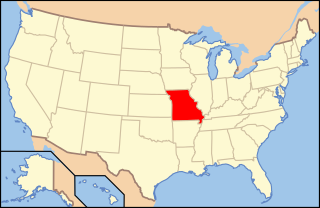
Gun laws in Missouri regulate the sale, possession and use of firearms and ammunition in the state of Missouri in the United States.
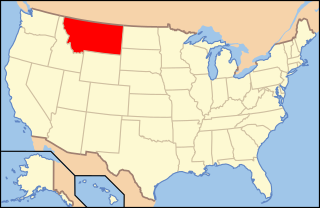
Gun laws in Montana regulate the sale, possession, and use of firearms and ammunition in the state of Montana in the United States.
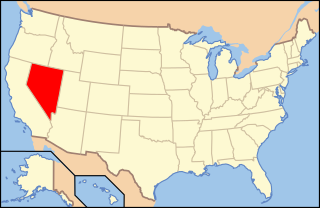
Gun laws in Nevada regulate the sale, possession, and use of firearms and ammunition in the state of Nevada in the United States.
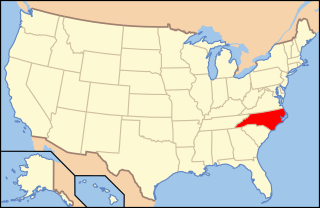
Gun laws in North Carolina regulate the sale, possession, and use of firearms and ammunition in the U.S. state of North Carolina.
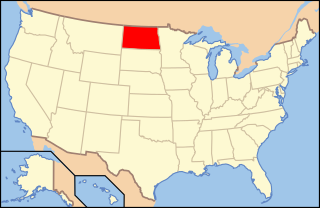
Gun laws in North Dakota regulate the sale, possession, and use of firearms and ammunition in the state of North Dakota in the United States.

Gun laws in Pennsylvania regulate the sale, possession, and use of firearms and ammunition in the Commonwealth of Pennsylvania in the United States.

Gun laws in Texas regulate the sale, possession, and use of firearms and ammunition in the U.S. state of Texas.

In the United States, campus carry refers to the possession of firearms on college or university campuses. Each state has its own discretion on laws concerning campus carry.

The history of concealed carry in the United States is the history of public opinion, policy, and law regarding the practice of carrying concealed firearms, especially handguns.